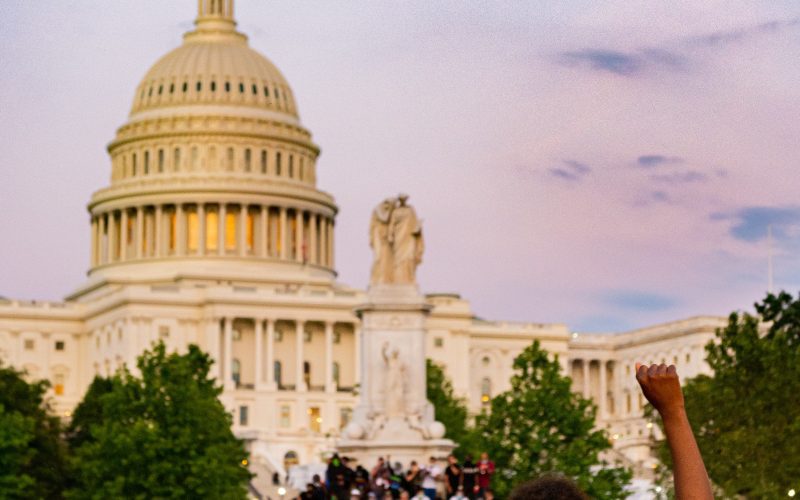Social justice is a term that we hear more and more these days. But what does it really mean? And how does it relate to the law? In this blog post, we’ll explore the concept of social justice through a legal lens. We’ll examine different types of social justice, look at its relationship with human rights and discuss why understanding social justice is important for creating a fairer society. So grab a cup of coffee and let’s dive into this fascinating topic!
What is Social Justice?
Social justice is a complex and multi-faceted concept. At its core, social justice refers to the idea that everyone should have equal access to basic rights and resources, regardless of their race, gender, religion or socioeconomic status.
One way to think about social justice is as a response to inequality. In many societies around the world, there are significant disparities in wealth, power and opportunity. Social justice seeks to address these disparities by advocating for policies that promote fairness and equality.
Another key aspect of social justice is inclusivity. This means recognizing that all people have inherent worth and dignity, regardless of their background or circumstances. It also means working actively to include marginalized groups in decision-making processes and ensuring that their voices are heard.
Ultimately, understanding what social justice means requires us to look beyond our own experiences and perspectives. It requires empathy, compassion and a willingness to listen deeply to others’ stories and struggles.
The Different Types of Social Justice
Social justice can take many forms, each addressing a specific issue or group that has been historically marginalized. One type of social justice is distributive justice, which aims to ensure an equitable distribution of resources and benefits within society. This can include access to education, healthcare, housing, and employment opportunities.
Another type of social justice is corrective justice, which seeks to rectify past injustices through measures like reparations or affirmative action programs. This approach recognizes the lasting impacts of systemic discrimination and seeks to level the playing field for those who have been disadvantaged.
Environmental justice is another critical aspect of social justice that focuses on ensuring all individuals have the right to live in a clean environment free from harmful pollutants. This includes advocating for policies that address climate change and promoting sustainable practices.
Restorative justice prioritizes repairing relationships between individuals and communities rather than punishing offenders. This approach emphasizes healing over retribution and acknowledges the importance of forgiveness in moving forward as a society.
Understanding these different types of social justice helps us recognize the complexities involved in creating a more just world for all people.
The Relationship Between Social Justice and the Law
The relationship between social justice and the law is a complex one. On one hand, laws can be used as tools to promote social justice by establishing fair and equitable rules that protect individuals’ rights. Laws can also be used to punish those who violate these rights or engage in discriminatory practices.
However, on the other hand, laws themselves are not always just or fair. In many cases, laws may actually perpetuate injustice by reinforcing existing power structures or discriminating against certain groups of people.
For example, during the Jim Crow era in the United States, segregationist laws were used to systematically oppress Black Americans and deny them basic civil rights. Similarly today there are still unjust laws that discriminate against marginalized communities based on race, gender identity or sexual orientation.
Therefore it’s important for legal systems around the world to constantly evaluate whether their laws are promoting social justice or perpetuating systemic injustices. By doing so they can ensure that everyone has equal access to justice within society regardless of ethnicity,class,status,and background
Social Justice and Human Rights
Social justice and human rights are intertwined concepts that deal with the fundamental principles of equality, fairness, and respect for all individuals. Human rights refer to the basic freedoms and entitlements that should be afforded to every person, regardless of their race, gender identity, religion or other characteristics. These include but not limited to the right to life, freedom from discrimination or torture.
Social justice goes beyond individual rights; it refers to addressing systemic inequalities in society through policies and practices aimed at creating a fairer distribution of resources among different groups. Social justice is essential because it ensures that everyone has equal opportunities in education, employment and access to healthcare services.
Human rights violations often occur when social injustice exists within a society. For example, marginalized communities may face discrimination based on their race or socioeconomic status leading up-to poverty which violates their basic human right as humans deserving dignity.
To achieve social justice requires protecting human rights at every level by holding governments accountable for ensuring these fundamental principles are upheld for all citizens regardless of age,race,social status etcetera..
In conclusion , Social Justice And Human Rights work hand-in-hand towards achieving a world where everyone is treated fairly without any form of discrimination whatsoever!
Conclusion
Social justice is a vital aspect of society that aims to ensure fairness and equality for all individuals. It recognizes the systemic barriers that prevent marginalized groups from accessing their basic rights and works towards dismantling them. Social justice takes several forms such as distributive justice, procedural justice, and corrective justice.
The law plays a critical role in promoting social justice by providing legal frameworks that protect human rights and guarantee equal treatment under the law. The judiciary system also ensures accountability of those who violate these laws.
Therefore, it is crucial to recognize and address issues of social injustice through a legal lens to create an equitable society for all. We must continue to work together towards achieving social change by advocating for policies that promote equality and supporting organizations working towards this goal. By doing so, we can make our communities more just, fairer places where everyone has an opportunity to succeed regardless of their background or circumstances.












